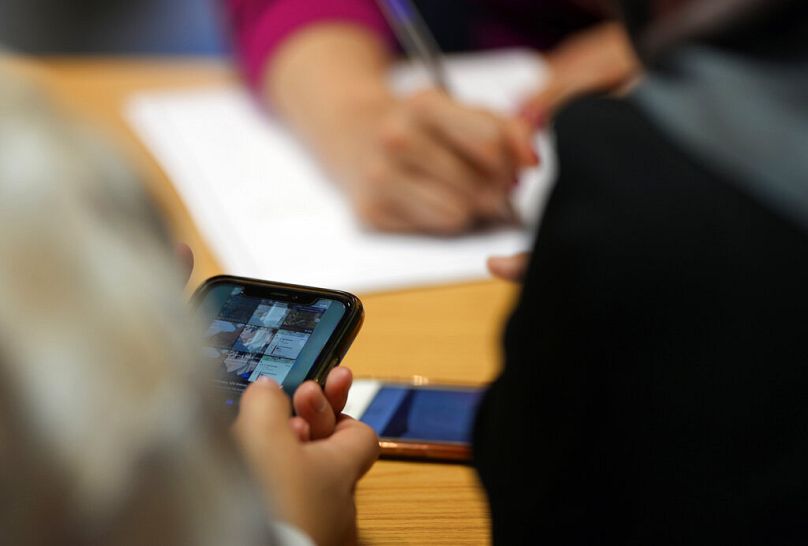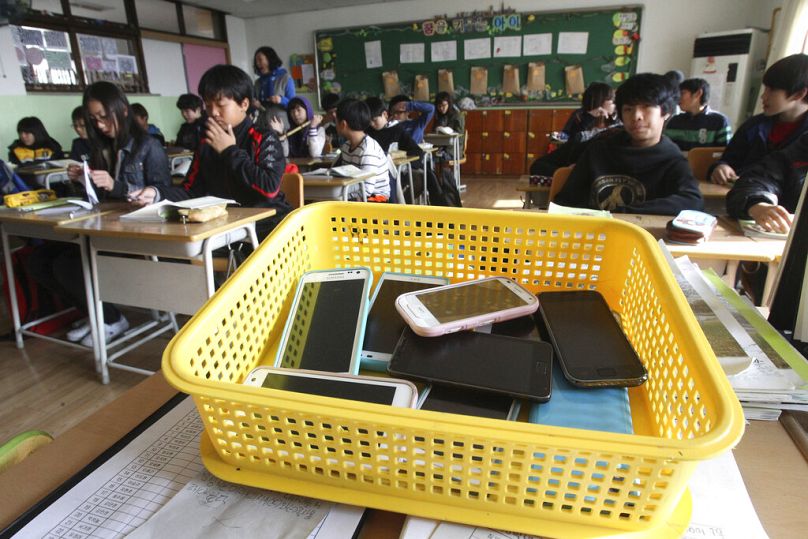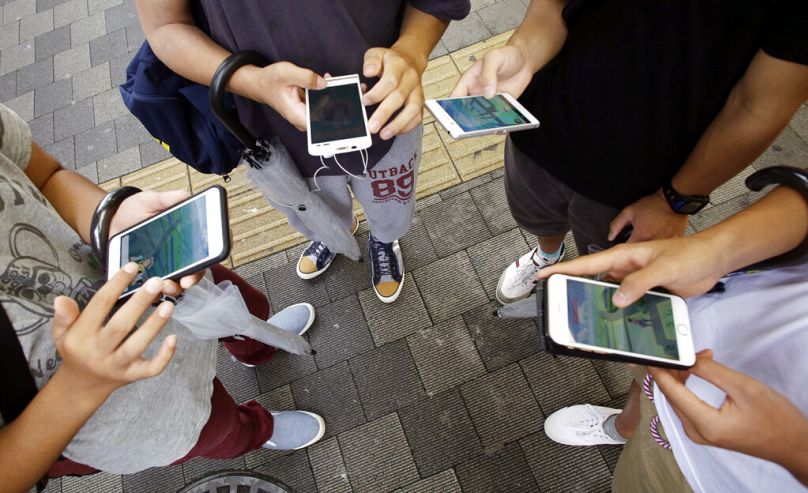Spain is cracking down on mobile phone use in schools, introducing total bans or highly regulating the devices that many teachers and parents say are not needed.
All over Spain, WhatsApp groups have been buzzing with parents debating one of the most divisive topics in the country: no, not controversial Spanish national politics, but whether schools should ban mobile phones.
One of the biggest group chats started in Barcelona, and quickly gained more than a thousand members, and posed the question of whether or not mobile phones should be allowed at educational facilities.
The group's founding member, and mother of three school-age children Elisabet Garcia Permanyer, told local media that she didn't want to give in to the social pressure norm that once a pupil enters secondary school, they should be allowed their own mobile phone.
The group chat, which now includes around 10,000 parents from different neighbourhoods all over the city, is used to share information along with any questions mums and dads may have on mobile use.
It has also been used to start initiatives: the first one being a document parents can sign, committing to not buy their child a mobile phone until the age of 16.
According to the latest UNESCO report on global educational monitoring, one out of four countries has approved laws banning mobile phone use in classrooms. It’s certainly a hot topic in Europe at the moment, but not an easy one to agree on.
Within Spain, different autonomous regions have different approaches. Some opt for a full legal ban on mobiles at educational facilities, while others have a more lenient approach.
A total ban: The only option
The more lenient approach doesn't seem to be working too well.
This year, many Spanish schools have laid down stricter rules when it comes to phones during class hours and last week, education officials in Catalonia said that 53% of schools in the region are moving to introduce tougher rules.
Other regions in Spain which have decided to partially ban smartphones include Castilla-La Mancha, Galicia, and the Community of Madrid.
Tomeu Bauzá Gayá, a 16-year-old pupil from a secondary school in Palma de Mallorca, says that this year pupils are not allowed to bring their devices into school and that if they do, these must be left in a box until the end of the day.
He told Euronews that this is the first year such rules have been put into place. The main justifications are to stop students taking pictures of each other, or teachers; to prevent phones ringing, beeping or buzzing during class; and to stop students using their smartphones to cheat during exams.
"Students just weren’t following the rules," says Tomeu, who added that "it is a shame, since some teachers depended on mobile devices during their lessons".
Tomeu’s school has a selection of computers that can be reserved and lent out to teachers during class hours, but these simply aren’t enough to meet the digital demands of modern day society.
Not abiding by the rules when given a certain degree of autonomy has led to governments and local school boards to set extreme measures.
There doesn’t seem to be a clear scientific consensus on the effects mobile phone use may have on adolescents, but there is some evidence it is bringing grades down and that limiting smartphones at school can reduce bullying.
'Mobiles phones are not classroom necessities'
Toni Socies, who has been teaching Latin for five years in secondary schools all over Barcelona, claims there is "no need for mobile phones at school."
At his school, this is also the first year mobile phones are completely banned, which he says, has made his classes "marvellous."
Toni admits himself that he refrains from using technology, partly because he teaches such a classical subject that can be learnt with “a pen, a piece of paper and a dictionary” and partly because he is afraid of pupils “losing basic competencies”, such as reading and writing.
Although he does take advantage of the fact that in his school, and in the region of Catalonia in general, the education department makes sure every pupil has their own laptop, and lets them use it for research during his classical culture subject.
The laptops also started distracting students, but these are now kept in a cabinet when not deemed necessary. When asked about schools that can’t afford to provide every student with a laptop, he replies that “either every student should have one or none should”, as he thinks that they are “not necessary for learning in many subjects.”
Less technology, more equality
The Latin teacher's opinion seems to coincide with the conclusion of the UNESCO report, which claims resources allocated to technology should be spent on classrooms, teachers, and textbooks for all children in low and lower-middle-income countries lacking access to these resources, so that they too can reach universal secondary schooling and minimum learning competencies.
On top of that, the agency warns that the benefits of technology in education are not evenly distributed, with disadvantaged kids usually being denied the opportunity to take advantage of it.
It’s not just Spain that is cracking down on mobile use. Other European countries have been doing the same. France, Italy, Portugal, Finland and the Netherlands have all introduced similar bans, or are planning to in the future.
Sweden, which ranked ninth in the PIRLS report on reading comprehension (Spain and Catalonia ranked exceptionally low), has put the brakes on its plan to digitise classrooms by 2023.
In the UK, new guidance from the Department for Education will back head teachers in banning mobile phone use throughout the school day, including at break times, to tackle disruptive behaviour and online bullying while boosting attention during lessons.
It aims to support the wider work the government is doing to raise standards in schools by increasing students’ focus and reducing distractions.


















